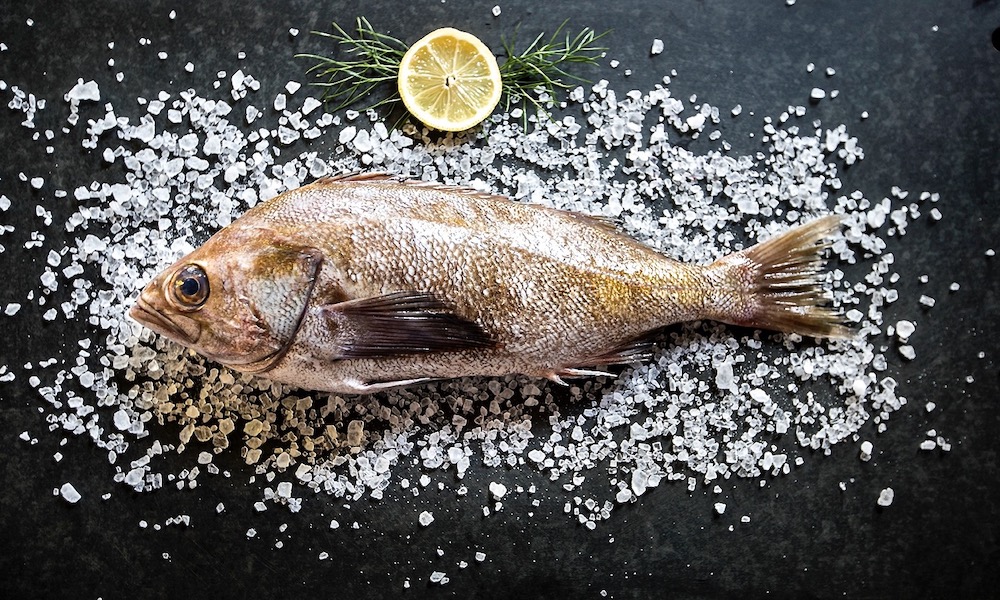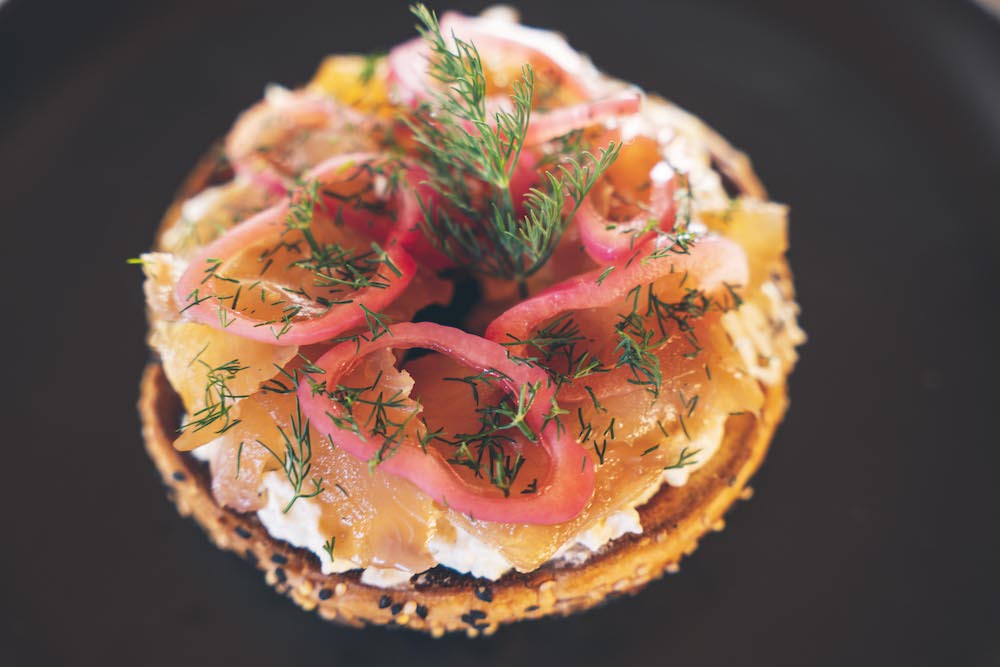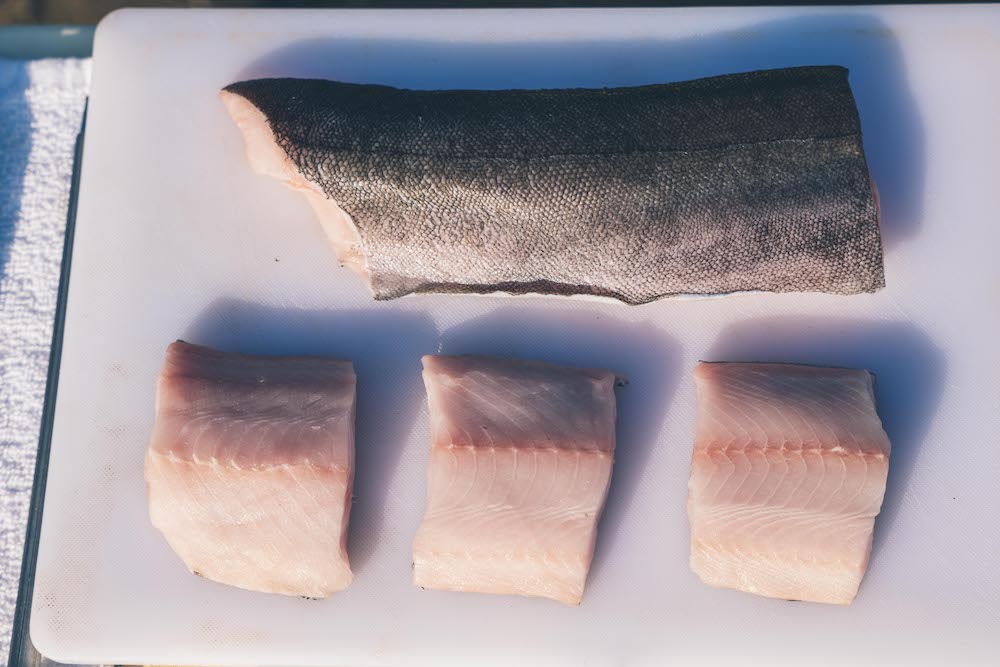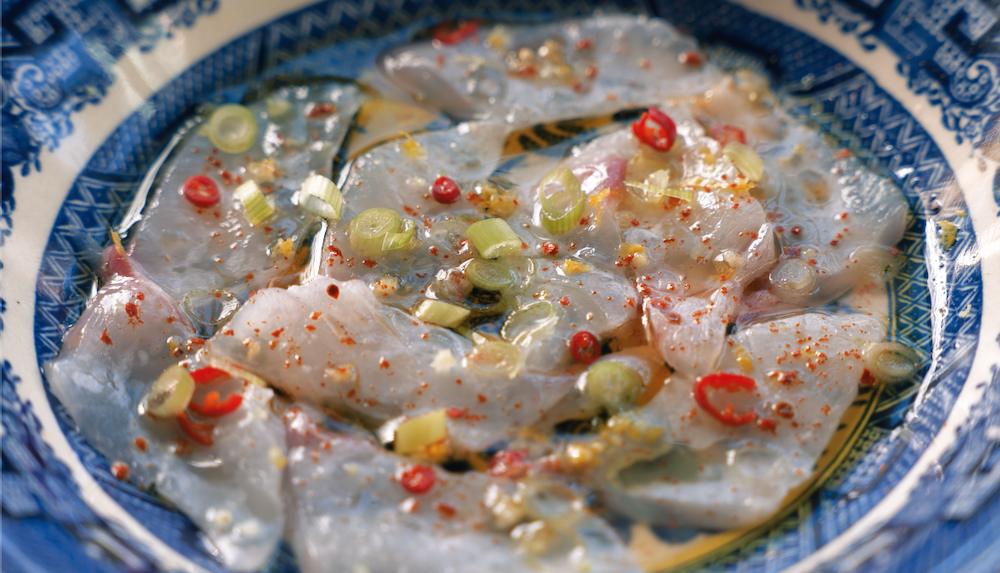
March 22, 2023 – Some of Monterey Bay’s local catch has a tasty little secret to share: It ranks among the healthiest things to eat on the planet.
Pacific dover sole, for instance, is wildly high in protein, with protein accounting for more than 96 percent of its calories. Compare that to skinless chicken breast, a celebrated lean protein source, coming in at 80 percent.
For those who already find dover sole delicious (*raises hand*), that nutrition bonus feels like finding out your best friend has a secret habit of performing pro bono surgeries for the ill. You already loved ’em, and now this!?
That revelation emerged as part of a study just published by Exact Scientific Services Lab. On top of its protein potency, dover sole serves as a great source of vitamin E, vitamin B6 and selenium—an antioxidant mineral—delivering six times more selenium than mighty Alaska king salmon.

Other findings pile on the goodness:
• Black cod (aka sablefish) contains very high levels of omega-3 fatty acids, among the very highest amounts of any fish—more than salmon, mackerel, sardines or anchovy, and five times more omega-3 than Atlantic cod. (West side!)
• Pacific rockfish also scores high in protein. Canary rockfish protein, for instance, delivers 92 percent of total calories, and higher levels of omega-3s than many other lean white fish like tilapia or yellowfin tuna.
• Rockfish additionally packs in the potassium, containing more pound-for-pound than bananas, which is bananas.
• Given each of these species is wild-caught, they are hormone-free, antibiotic-free, additive-free, and non-GMO. Each ranks as a “best choice” by Seafood Watch.
Positively Groundfish commissioned the study in hopes it might furnish added momentum for the nonprofit’s mission, which is to cultivate market demand for West Coast bottom dwellers to make their fisheries sustainable ecologically and economically.

Demand for West Coast groundfish understandably fell off when they were overfished to the point of red listings; as Edible reported in summer 2019, these days their populations are thriving, but many eaters have moved on to tilapia and a range of farmed fish.
Christina DeWitt, director of the Seafood Research and Education Center at Oregon State University and a Positively Groundfish board advisor, believes that makes the study all the more helpful.
“It was important to study these fish because we saw a significant scientific knowledge gap concerning their nutritional content,” she says. “We want to continue to advance our understanding of the health benefits afforded by various fish species.”
The press release that accompanied the study also dips into tasty non-nutritional parts of the plot.
It notes all three species are white, mild, flaky fish versatile enough to be incorporated in a broad variety of cuisines and cooking methods.

The release adds buttery black cod is popping up on more and more high-end restaurant menus; Pacific dover sole proves a favorite for its sand dab-like delicate flakiness and slightly nutty flavor; mild and clean-flavored Pacific rockfish works wonders in tacos, ceviche or crudo.
“With these fish, eating healthier is not a trade-off for flavor or eating pleasure,” the release reads.
The Positively Groundfish YouTube channel lays out added inspiration on that front, with a deep reservoir of recipe demos.
Those come flanked by waves of other tutorials, environmental updates, industry personality profiles and fishery insights.
It’s a fantastic resource for West Coast seafood enthusiasts.

A boatload more comprehensive—and comparative—nutritional information, which analyzes 10 West Coast ground fish in total, complete with charts and graphs, lives on the Positively Groundfish website.
Positively’s co-founder and executive director Jana Hennig sounds audibly exuberant at the study’s results.
“Usually super foods come from far away, like moringa fruit [from India] or açaí from the Brazilian jungle,” she says. “[These fish] happen to be local and one of the best things you can eat in the world.”
More at positivelygroundfish.org.
About the author
Mark C. Anderson, Edible Monterey Bay's managing editor, appears on "Friday Found Treasures" via KRML 94.7 every week, a little after 12pm noon. Reach him via mark@ediblemontereybay.com.
- Mark C. Andersonhttps://www.ediblemontereybay.com/author/markcanderson/
- Mark C. Andersonhttps://www.ediblemontereybay.com/author/markcanderson/
- Mark C. Andersonhttps://www.ediblemontereybay.com/author/markcanderson/
- Mark C. Andersonhttps://www.ediblemontereybay.com/author/markcanderson/



